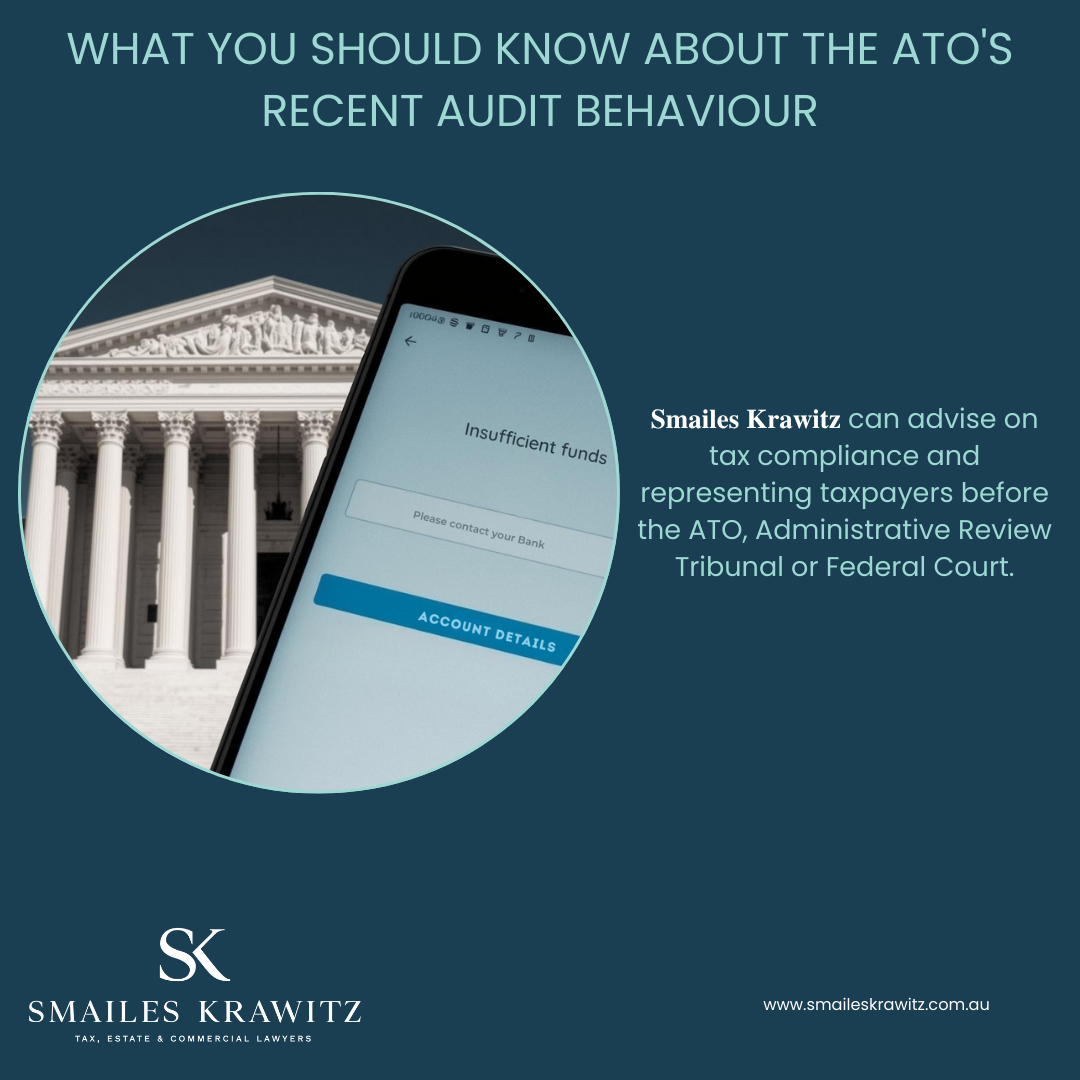WHAT YOU SHOULD KNOW ABOUT THE ATO'S RECENT AUDIT BEHAVIOUR
Unusual Audit Behaviour -- ATO commences and completes a taxpayer audit, does not notify the taxpayer of the audit and takes funds from the company bank account on the day it notifies the taxpayer of the audit.
Recently, we have noticed multiple ATO audits giving rise to dramatic and unanticipated outcomes for business taxpayers.
The formula we have seen is as follows.
The ATO:
1. commences an audit of a business taxpayer;
2. does not notify the taxpayer of the audit or provide them with an opportunity to respond during the audit;
3. completes the audit and raises liabilities, including estimated liabilities;
4. forms an opinion about the taxpayer’s culpability of behaviour for penalty assessments, again, without having had the taxpayer provide any input to the ATO; and
5. finalises the audit and on the same day applies a garnishee notice against the taxpayer’s bank account.
In other words, the garnishee order is applied against the bank account without the taxpayer being aware they were being reviewed by the ATO nor having an opportunity to consider the findings or provide any input to the ATO on the matter.
This is uncommon behaviour as the ATO typically provides taxpayers with an opportunity to respond to an audit. However, in these cases, the money is just taken without notice.
Unfortunately, the garnishees have not been limited to a percentage amount (e.g. 30% of the available funds). The notices applied against 100% of the audit total including money that may be owing to the taxpayer from the bank in the future. In circumstances where the ATO audit may be made on a ‘default’ basis with penalties and no taxpayer comment, these audit totals can be large.
This can lead to difficulties if the business pays its staff or suppliers from that bank account.
Whilst the ATO has the power to run audits covertly and take steps to prevent dissipation of assets (a common example might be where a taxpayer might be a flight risk), these scenarios would typically be rare.
The law provides a statutory framework to object and dispute tax debts. However, a covert audit places the taxpayer at a considerable disadvantage, because it has to lodge an objection seeking to overturn the ATO’s assessment, in circumstances where its bank account may have been emptied.
If you have been subject to ATO compliance activity, please reach out to Andrew Giorgi.
E: andrew.giorgi@smaileskrawitz.com.au
M: + 61 403 081 578
Follow us on LinkedIn for our latest updates HERE.
The material in this article is provided only for general information. It does not constitute legal or other advice.
Limited Liability by a scheme approved under Professional Standards Legislation.
Read the Smailes Krawitz Disclaimer HERE.

